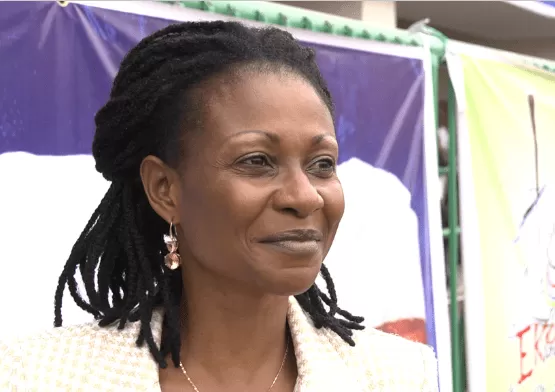Across boardrooms and training grounds, a pivotal Nigerian sports story is coming into focus. At its heart is the Nigeria 2030 Commonwealth Games bid, a national push that blends ambition with development, while a parallel conversation in women’s football calls for unity to protect the country’s hard won edge on the continent.
A centenary bid with economic and social impact
Nigeria has formally stepped into the race to host the 2030 Commonwealth Games, a centenary edition that would carry rare symbolic weight. The National Sports Commission, led by Chairman Mallam Shehu Dikko and Director General Hon. Bukola Olopade, is championing the project with the promise of tangible economic and social dividends.
The projections are clear and bold, with more than 10,000 jobs expected across key sectors if the bid succeeds. Beyond the headline number is a blueprint that links sport to national growth, tying global stage visibility to livelihoods at home.
- Construction and facility management,
- Tourism and hospitality,
- Transport and finance,
- Food services.
Infrastructure and human capacity on the agenda
Organisers describe a plan that accelerates infrastructure, with an eye on both competition needs and long term urban gains. New venues and city upgrades are framed as a foundation for future events, not a one off build.
- New sports halls and conference centers,
- Improved road networks,
- Urban projects that raise capacity for international hosting.
Just as important is the human side of preparation, where investment in training facilities, coaching, and grassroots programmes aims to seed the next generation. The NSC highlights a skills legacy in global standard event planning and delivery, a path to build human capacity that endures after the flame goes out.
“This is Nigeria’s time to step forward and show the world our capacity, resilience, and excellence,” said Kola Daniel, Special Adviser on Media in the Office of the Director General of the NSC. “We call on every Nigerian, across all sectors and communities, to support this noble aspiration.”
That call captures the bid’s dual purpose, to compete for a marquee event and to rally a country behind a shared development project. The centenary staging would be more than spectacle, it would be a stage for unity, resilience, and cultural richness.
Mary Onyali backs the dream
On the athlete’s side of the story, two time Commonwealth Games gold medallist Mary Onyali has stepped forward as a powerful advocate. She frames the moment as both a test and an opportunity, arguing that Nigeria is ready to meet international standards and to leverage the Games for long term gains.
“Nigeria is ready. We have the facilities, the talent, and the passion for sports,” Onyali said. “The Commonwealth Games would not just be about competition, but also about legacy, inspiring a new generation of athletes, boosting our economy, and improving our international image.”
Onyali’s plea to decision makers is direct, she believes awarding the Games to Nigeria would prove Africa’s capacity to deliver world class events. Her confidence rests on experience, including Nigeria’s history of staging major tournaments such as the All-Africa Games, and on the conviction that accountability for sports administrators will rise with the scale of the task.
She also links hosting to a broader wave of sports development, arguing that investment in infrastructure and grassroots programmes is overdue and would pay forward for years. The goal is not only to host, it is to hardwire gains that stay in communities long after the closing ceremony.
Women’s football seeks a united path
While the Games bid gathers momentum, Nigerian women’s football is wrestling with a different kind of challenge. Former Super Falcons coach Edwin Okon has urged clubs to pull in the same direction when a Nigerian side qualifies for the CAF Women’s Champions League, warning that domestic rivalries are undermining continental performance.
“When a club qualifies to represent Nigeria, we should all see that club as a national team,” Okon said. “But what we see instead is selfishness. Some clubs hold back their players, refusing to release them, and that hurts our chances. This mentality must change.”
The message is blunt, cooperation is a competitive advantage. Okon, who also managed Rivers Angels, argues that weakening a representative club amounts to weakening Nigeria itself, and that unity is essential if the country is to maintain its status as one of Africa’s leaders in women’s football.
He adds a cautionary note about rivals who are making strides, pointing to South Africa and Morocco as examples of countries closing the gap. The prescription is practical and immediate, release players when called, share resources where possible, and treat continental campaigns as national missions.
- See the representative club as a national team,
- Facilitate player release and collaboration,
- Adopt policies that encourage openness and cooperation.
“When you weaken your representative, you weaken Nigeria. We must put aside rivalries at home and focus on achieving results that elevate the country internationally,” Okon said.
Okon’s stance is aligned with a wider goal, to turn domestic strength into continental consistency. The appeal to administrators is clear, build frameworks that reward collaboration and ensure that elite campaigns serve the national interest.
Two stories, one national trajectory
Taken together, the Games bid and the women’s football debate speak to a single theme, Nigerian sport at a crossroads that demands both vision and cooperation. One path runs through bricks, roads, and venues, the other runs through relationships, shared purpose, and smart policy.
The NSC has positioned the 2030 push as a vision for national transformation, a blueprint for development, and a legacy project that could inspire generations. In parallel, the women’s game presents a test of cohesion that could define how far Nigeria stretches its advantage on the continental stage, a reminder that culture and governance can be as decisive as talent.
There is a practical rhythm to both agendas, build now for tomorrow. In the Games conversation, that means facilities, training, and event management skills that meet global standards, in women’s football, that means coordinated support when a club carries the flag, so the best players and best plans travel together.
Legacy as a living promise
The word legacy can feel abstract, yet in this context it is a living promise. It is a hotel worker trained to international service levels, a young coach who learns modern methods, a volunteer who becomes an event professional, and a player who rises through a stronger club ecosystem.
Legacy is also symbolic, a centenary celebration that allows Nigeria to showcase its resilience, unity, and cultural richness to the world. It is the collective pride that Kola Daniel invoked, and the accountability that Mary Onyali insists will sharpen administrators, both pointing to a future where ambition is matched by delivery.
In women’s football, legacy is built in locker rooms and boardrooms where cooperation replaces rivalry at critical moments. It is the choice to back a continental representative with every available resource, so that the badge on the front matters more than the crest on the sleeve, a simple shift that carries powerful consequences.
The road ahead
The coming months will test plans, patience, and partnerships. For the Games bid, the focus is on meeting benchmarks that prove readiness, while sustaining public belief in a project sold as a catalyst for jobs and growth, for the women’s game, the priority is to translate Okon’s call into policy that makes collaboration the norm rather than the exception.
There is no shortcut to any of it, only the hard work of building systems that outlast a news cycle. If the bid strengthens institutions and if club unity takes root, Nigeria will be better placed to claim its place on the world stage and to keep its edge in Africa, outcomes that would fulfill both the spirit and the substance of this moment.
In the end, sport often mirrors the nation it serves. This story, anchored in a bold bid and a plea for unity, carries a simple hope that Nigeria can turn aspiration into enduring progress, and that every training session, planning meeting, and policy decision brings that hope a step closer to reality.






